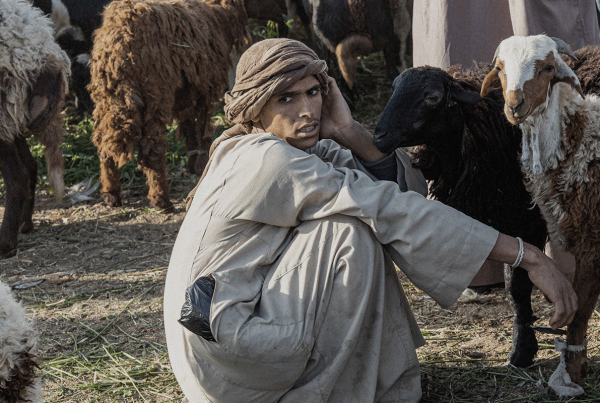Language matters. It impacts how we understand situations. It colors our perceptions of people. It shifts the way we conceive of ourselves. As the counter-human trafficking field develops, there is one language question many organizations have asked: should we use the word “rescue” when talking about human trafficking?
Most of the time, the word “rescue” refers to what is known within counter-trafficking organizations as “intervention.” Intervention efforts interrupt the current status quo — a raid on a brothel, the removal of survivors from the hands of their exploiters, and the arrest of traffickers.
But because “intervention” requires explanation before most people understand what it means, “rescue” has often been used instead. It’s easier to understand. However, some activists believe it comes with problematic connotations.
At The Exodus Road, we have chosen to use the word “rescue” in certain contexts — and not in others. That choice is significant enough that it deserves an ongoing conversation about where, when, and why using “rescue” might be appropriate.
Does the word “rescue” empower survivors?
This question is the center of every conversation about appropriate language regarding human trafficking. If we choose words that are disempowering for the very people we are trying to empower, on some level, we are unintentionally robbing a piece of their journey toward autonomy.
Merriam Webster defines “rescue” as “to free from confinement, danger, or evil: SAVE, DELIVER.” While that definition is stirring and inspiring, it also shows how the word focuses on the individuals doing the rescuing. It implies that the survivor is a passive character being acted on — which may remind them of the trauma they experienced while being trafficked.
The role that The Exodus Road’s investigators play in intervention is vital, and we never want to dismiss the courage and sacrifice of these heroes. However, they recognize their role as facilitators, and would not want to be the center of the story either. The U.S.-based, survivor-informed nonprofit Thistle Farms cautions, “agencies and organizations are the hosts, not the heroes.”
Rebecca Bender, an advocate and a human trafficking survivor who works in the United States, explains how the word “rescue” can create harmful expectations of a victim-savior dichotomy. Real life, she warns, is rarely that simple.
“We must push the ‘rescue victims’ [paradigm] out of our thoughts or we’ll be disappointed,” Bender wrote in a 2015 article. “She isn’t running from the hotel thankful to be ‘rescued…’ She’s hardened and hard. She cusses and wants a cigarette. She misses her abusive boyfriend, which we know is a trafficker, but she doesn’t see the fraud and wants to be the family he promised.”
That psychological layer ties into the complexities of providing trauma-informed care for survivors of human trafficking. Survivors may not immediately be able to offer a clear narrative of their own exploitation and path to freedom. However, we have a responsibility as advocates to listen and consider how they would prefer their story to be told.

What words should be used to describe human trafficking intervention?
You might be wondering, “if using ‘rescue’ has the potential to do harm to the people you’re trying to support, why do organizations still use it?” We would offer three reasons that the use of this term can sometimes be merited.
1. Clarity.
As we mentioned earlier, “rescue” is a word that most people understand. This makes it effective for connecting people to the reality of counter-trafficking work. Even when it comes to search terms used by interested everyday activists, “human trafficking rescue” is far more likely to be the phrase they start with rather than “human trafficking intervention.” Those just beginning to explore the work of combating modern-day slavery most likely would not know the technical language to use.
2. Urgency.
On a practical level, using a technical term like “intervention” can rob appeals for funding of their legitimate urgency. “Intervention” is accurate, but it is also significantly less impactful and clear. The loss of donor dollars hurts individuals still trapped in trafficking cycles.
3. Cultural considerations.
So far, the conversation around language that should be used in anti-human trafficking work has been almost entirely held in the United States, and in the English language. Therefore, the conversation often centers on the typical experiences of survivors of human trafficking in the United States, as well as an American cultural perspective. In the case of The Exodus Road, most of our intervention work takes place in Asia and Latin America. In these regions, human trafficking can look quite different from the way it does in the United States.
For example, individuals who are trafficked might be coming from a level of extreme poverty that is relatively unknown in the U.S. In India, they might be members of a lower caste, leaving them socially devalued and unprotected. Survivors in other countries may have had less access to education, limiting their avenues out of exploitation. The actual physical confinement and constriction of their movements might also be more severe during the time they are being trafficked.
Individuals who are impacted by trafficking in other contexts are often disadvantaged in ways we cannot fully grasp; the power dynamics are simply different. We do not want to use language that invalidates the very present realities of extreme poverty, severe social stigmas, and physical restrictions for survivors in these locations. “Rescue” can be a way to acknowledge that intense disparity.
What does all this mean for how we communicate?
All of this means that we lean on the wisdom of our national staff for context on how survivors in these regions describe their own experiences.
Our investigators have experienced some of the same language challenges that we have encountered in the United States. Law enforcement is likely to use the equivalent of “rescue” in their native languages, setting the tone for social services and NGOs. That has historically made it most effective to use that same language.
In contexts where survivors are separated from that rhetoric, different ways of storytelling can begin to emerge. Sola is The Exodus Road’s Global Aftercare Program Manager. She led the way in establishing Freedom Home, our safehouse for survivors of human trafficking in Thailand.
Sola has observed that in Southeast Asia, survivors prefer to share about how organizations “helped” them, not “rescued” or “saved” them.
“The word rescue can make them feel not brave enough,” she explains.
Survivors in this context often feel most comfortable using language that refers to aftercare practitioners like family members. Sola finds that it’s healing for survivors to refer to her as their sister, positioning them on equal footing as partners in the restoration process.
This is just one example of the way that different cultures may use different concepts to describe safety. We can learn from this that different contexts may require different word choices.

How does The Exodus Road talk about intervention?
Over the first decade of its existence, The Exodus Road’s intervention program and monthly giving community operated under the title “Search + Rescue.” This afforded us clarity and urgency in communicating with donors, supporters, and other organizations.
However, as our work has evolved over the years, we have added Training & Education and Aftercare programs to our work around the world. That’s why in 2023, we changed the name of the generous community who funded this work to “Freedom Collective.” This change also allowed us to use verbiage that feels empowering to the survivors we serve.
As we learn from the voices of survivors, from our own experience, and from the complexities of this work around the globe, we are committed to learning and growing. To that end, The Exodus Road is intentional in choosing the right words on a case-by-case basis, determined by what the individual situation merits. In some cases, such as ones involving physical confinement or very young children being sold, we may use the word “rescue.” In other cases, we use the term “intervention.”
When we do use the word “rescue,” we want to be clear that we are not implying a victim-savior dynamic. Rescue is a communal act of courage. The Exodus Road is just one participant — and not the most important one. The most important participant will always be the survivor, whose resilience in reclaiming their autonomy is an immeasurable act of courage.
Finding the right language to convey that is hard, and it is an ongoing process. We recognize the inevitability of change in anti-human trafficking best practices. This conversation is new in the United States, and newer still in the countries where our intervention program operates. As new norms take shape, we are committed to listening to survivors — not just in the United States, but in every country where we operate.







